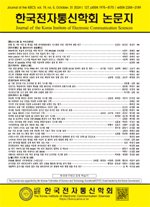지수족 수명 분포를 이용한 소프트웨어 개발 모형의 성능 평가
Performance Evaluation of Software Development Model using Exponential Family Life Distribution
- 한국전자통신학회
- 한국전자통신학회 논문지
- 제19권 제5호
-
2024.10933 - 940 (8 pages)
-
DOI : 10.13067/JKIECS.2024.19.5.933
- 21

본 연구에서는 NHPP 기반 소프트웨어 개발 모형에 시스템 고장의 신뢰성 분석에 적합한 지수족 수명 분포를 적용한 후, 개발자가 요구한 고장시간 데이터를 대입하여 모형의 성능을 새롭게 평가하였다. 이에 따라, 첫째, 모형의 성능을 결정하는 m(t) 함수를 분석한 결과, 모든 모형이 참값을 예측하는 능력에서 과대하게 추정하는 속성을 보였다. 하지만, 가장 작은 오차를 보인 Burr-Hatke-Exponential 모형은 효율적이었다. 둘째, 모형의 성능에 관한 속성(m(t), 개발비용, 방출 시간)을 종합 평가한 결과, Lindley 모형이 가장 우수함을 확인하였다. 따라서, 본 연구를 통해 지수족 수명 분포의 성능을 새롭게 탐색하였고, 개발자는 관련 데이터를 활용함으로써 초기 단계에서 필요한 속성을 파악하고, 이를 개발 테스팅 단계에서 참조 데이터로 활용할 수 있다.
In this study, an exponential family life distribution suitable for reliability analysis of system failures was applied to the NHPP-based software development model, and then the performance of models were newly evaluated by substituting the failure time data requested by the developer. First, as a result of analyzing the m(t) function that determines the model performance, all models showed the property of overestimating the ability to predict the true value. However, the Burr-Hatke-Exponential model, which showed the smallest error, was efficient. Second, the Lindley model was found to be the best when total evaluating the properties of the model performance (m(t), development cost, release time). Therefore, through this study, the performance of the exponential family life distribution was newly explored, and by utilizing related data, developers can identify required properties at an early stage and use them as basic reference data during the development testing phase.
Ⅰ. 서 론
Ⅱ. 관련 연구
Ⅲ. 소프트웨어 고장시간을 이용한 개발모형의 성능 평가
Ⅳ. 결론 및 향후 연구과제
References
(0)
(0)